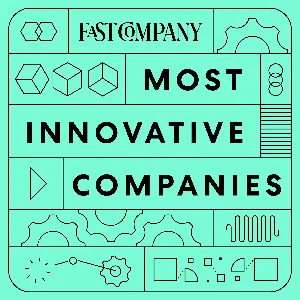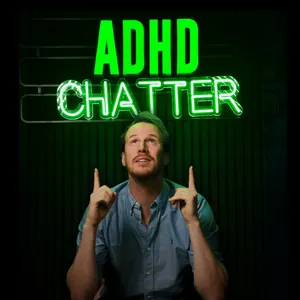Podcast Summary
Entrepreneurship and Mental Health: Entrepreneurs face higher mental health challenges than non-entrepreneurs, but these struggles can be transformative, leading to growth and innovation.
Personal and professional disruptions, including mental health challenges, can be transformative for entrepreneurs. According to a study by UC San Francisco, nearly half of entrepreneurs deal with mental health issues compared to 32% of non-entrepreneurs, with bipolar affecting 11% of entrepreneurs compared to 1% of non-entrepreneurs, and depression affecting 30% versus 15%. Andy Dunn, entrepreneur, founder, and CEO, shares his personal experience of navigating mental health struggles and how they have intertwined with his entrepreneurial journey. In his memoir "Burn Rate," Dunn contemplates whether he could have succeeded without his mental health journey. Since writing the book, Dunn's thoughts have evolved, and he continues to build companies despite his ongoing mental health challenges. The discussion highlights the importance of embracing curiosity, creativity, and courage to overcome disruptions and turn them into opportunities for growth and innovation.
Mental Health Challenges for those with Bipolar 1: Consistent medication and a strong support team are crucial for managing mental health conditions like bipolar 1. Embracing neurodiversity and prioritizing mental health are essential for innovation and addressing societal issues.
Mental health, specifically for those with bipolar 1, is a fundamental challenge due to affordability and access issues. This illness, while treatable, comes with devastating statistics regarding suicide. The speaker aims to prove that neurodiversity can be an asset and prioritizes maintaining health above all else. The role of delusion in innovation and the importance of a support system were also discussed. For those with mental health conditions, consistent medication and a strong support team are crucial. The speaker emphasizes the need for creative thinking and access to resources to address various societal issues, including mental healthcare. Overall, the importance of prioritizing mental health and embracing neurodiversity while maintaining a balance between fantasy and reality was a recurring theme.
Managing Bipolar Disorder: Medication, Therapy, and Sleep: Effective management of bipolar disorder includes medication, regular therapy visits, close sleep monitoring, and open communication with loved ones and healthcare providers.
Effective mental health management for someone with bipolar disorder involves a combination of medication, regular mental health professional visits, and close monitoring of sleep. These three elements serve as a foundation for maintaining stability and preventing potential slips into depression or dangerous levels of hypomania or mania. Regular communication with loved ones and healthcare providers about sleep patterns can also be crucial in preventing crises. Despite the challenges and expenses, these practices are essential for managing the condition and improving overall quality of life.
Separating identity from mental health struggles: Compassionately view mental health as part of human experience, not a defining characteristic, to foster empathy and reduce bias.
We all deal with mental health challenges, and it's crucial to separate an individual's illness from their identity. Mental health issues are not a defining characteristic but rather a part of the human experience. We should treat mental health with the same compassion and understanding as physical health. Observing that no one is immune to mental health struggles, we can foster empathy and reduce bias by acknowledging the commonality of dealing with difficult moments. By refraining from defining people by their mental health conditions, we can create a more inclusive and supportive environment for those who are struggling.
Recognize the difference between identity and health conditions: Create an inclusive workplace by acknowledging the difference between an individual's identity and their health conditions, and respond with empathy and active listening.
It's essential to recognize and distinguish between an individual's identity and their health conditions or challenges. By acknowledging the difference, we can create a more inclusive workplace where people feel comfortable sharing their experiences without fear of being defined solely by their struggles. Additionally, active listening and empathetic responses are crucial in helping individuals feel supported and understood, especially when dealing with invisible conditions. It's essential to create an environment where people feel encouraged to disclose their experiences without fear of judgment or negative reactions. By offering a non-judgmental response, we can create a sense of safety and acceptance, allowing individuals to share their stories and feel seen for who they truly are.
Leaders sharing vulnerabilities builds stronger relationships: Leaders sharing personal struggles can create a more inclusive culture, build deeper connections, and strengthen their influence.
Leaders can foster a more empathetic and connected workplace by sharing their vulnerabilities with their teams. This simple act can create a humanizing effect, making employees feel more at ease and encouraging reciprocal sharing. By being open about personal struggles, leaders can build stronger relationships, create a more inclusive culture, and even discover commonalities with team members. This vulnerability, rather than weakening a leader's influence, can actually strengthen it. Additionally, by recognizing that everyone has stories and struggles, we can create opportunities for deeper connections and understanding. The act of sharing vulnerabilities can be a powerful engine for building strong, platonic friendships and fostering a more empathetic and connected workplace.
Forming deep friendships involves regular interaction and vulnerability: Embrace vulnerability and complexity in relationships, challenging myths of normal and political moderation.
The formation of deep, meaningful friendships involves both seeing each other regularly in small groups and experiencing mutual vulnerability. This vulnerability, as Brene Brown has emphasized, is not a sign of weakness but rather a source of strength. The myth of normal being a fixed expectation for everyone can limit our growth and hinder us from forming authentic connections. Instead, we should embrace the complexity of individual experiences and perspectives, recognizing that there is no such thing as a "normal" person. This notion of normal being a myth can be freeing and encourages us to embrace our unique qualities and the impact we have on others. Another myth worth challenging is the idea of political moderation or the assumption that there is a single, unified moderate perspective. Instead, we should recognize the complex and nuanced nature of individual beliefs and the need to move beyond simplistic labels and expectations.
Using technology to foster real-life connections: Technology can help bring people closer together and facilitate real-life connections if used correctly. Small choices, like reading Atomic Habits and pushing oneself outside of comfort zone, can lead to personal growth.
Technology, particularly social media, is often perceived as a driver of social isolation, but it has the potential to bring people closer together if used correctly. The company Pyleabs, with its mantra "more social, less media," aims to build products that facilitate real-life connections and decrease the friction of small group communion. The speaker believes that technology can help reconnect people and create opportunities for collaboration and problem-solving. Additionally, the speaker shared that pushing oneself outside of one's comfort zone is important for personal growth. He mentioned reading Atomic Habits and the power of making small changes, like taking a walk during a call instead of skipping a workout due to time constraints. These small choices can compound over time and lead to significant improvements.
Focus on Incremental Progress for Significant Improvements: Consistently making small efforts towards goals leads to peace of mind, identity development, and eventual significant improvements. Embrace modest gains and decrease the need for external validation.
Making small, consistent efforts towards goals can lead to significant improvements over time, as outlined in the book "Atomic Habits." Instead of aiming for grand achievements that may not be feasible, focusing on incremental progress can lead to a more peaceful mindset and a sense of accomplishment. This approach also allows for the development of a positive identity and can help overcome mental barriers. For instance, instead of aiming to run a marathon, one could start by running for just 5 minutes a day. Even if the accomplishments are minute, the new narrative of identity that emerges can have a positive impact. The speaker also emphasized the importance of accepting modest gains and decreasing the need for external validation. By embracing small, consistent actions, one can build towards larger achievements over time.
Embrace candor, curiosity, and courage for disruptive ideas: Consistent effort and authenticity can lead to disruptive ideas through questioning, allowing persuasion, making unpopular decisions, prioritizing mental health, and creating safe spaces for vulnerable discussions.
With consistent effort and a willingness to be candid, curious, and courageous, anyone can create something meaningful and disruptive. Andy Dunn, a successful entrepreneur, emphasizes the importance of asking questions and allowing others to persuade instead of dominating discussions. He also highlights the significance of making unpopular decisions, which can lead to significant change. By practicing candor, curiosity, and courage, we can foster an environment where the best ideas can emerge and disruption can occur. Additionally, Dunn encourages prioritizing mental health and creating safe spaces for vulnerable discussions. Overall, his message is one of authenticity, inclusiveness, and the power of small changes.
Stories of Disruptors: Curiosity, Courage, and Resilience: Disruptors challenge the status quo, create positive change, and inspire others to do the same through curiosity, courage, and resilience
The stories of disruptors, who are making a significant impact on business, culture, and society, are filled with curiosity, courage, and resilience. These individuals, whom we'll continue to feature, have changed the game in various industries and inspired countless others to do the same. Their journeys serve as a reminder that with determination and a willingness to challenge the status quo, one can create positive change. So, let their stories inspire you to embrace your own curiosity, summon your courage, and build resilience in the face of adversity. Together, we can make a difference.





